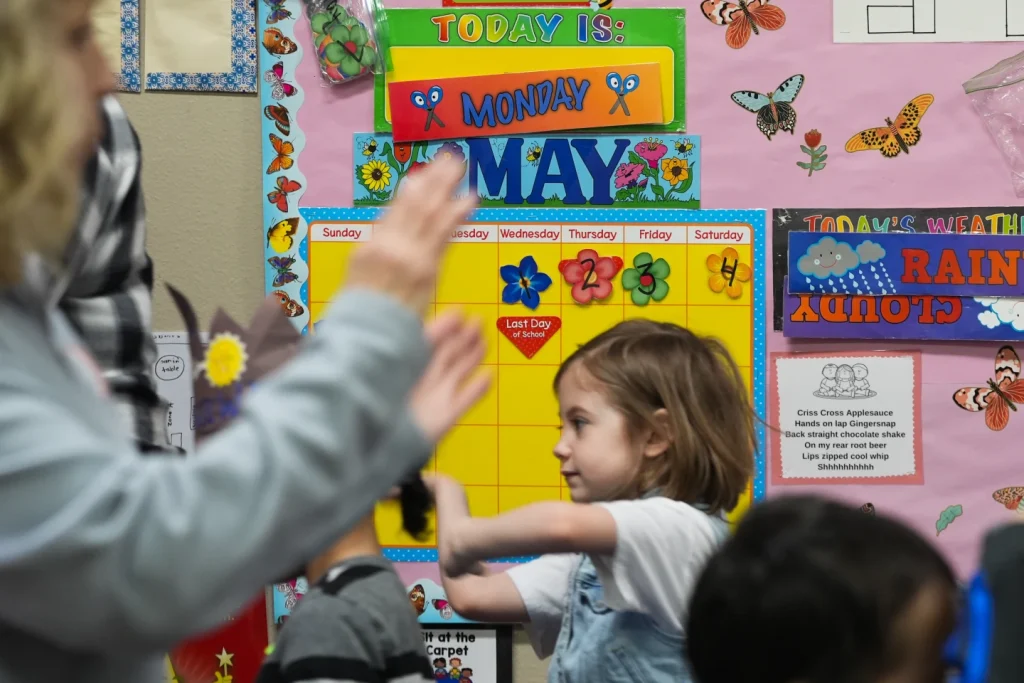The story of Kristine Bayne serves as a poignant testament to the transformative power of early childhood education programs, particularly the federally funded Head Start initiative, in the lives of families and communities.
What began as a simple inquiry at her doorstep about enrolling her daughter in a preschool program evolved into a profound journey of personal growth and community service for Bayne.
As she recounted, her engagement with Head Start not only equipped her child for a successful educational trajectory but also catalyzed her own development as a confident individual, a parent, and a professional.
Unfortunately, the recent closure of various Head Start centers in Alaska highlights systemic issues that threaten the viability and sustainability of such critical programs, particularly in rural and underserved communities.
The Head Start program, inaugurated in 1965, was designed to provide comprehensive educational, health, nutrition, and parental support services to low-income children and their families.
The approach emphasizes not merely cognitive skills but also socio-emotional development, thereby laying a robust foundation for future learning. For Bayne, participation in Head Start was transformative; it filled a void in her life as a young mother and educated her about effective parenting and self-advocacy.
This experience underscores the dual mission of Head Start: to prepare children for kindergarten while simultaneously uplifting their parents and community members through education and support.
In a region like Chugiak, where the challenges of drug addiction and economic instability are prevalent, Head Start has acted as a crucial lifeline, not merely enriching individual families but fortifying entire communities.
By providing training and resources for parents in recovery and fostering healthy developmental environments for children who may otherwise face significant turbulence, the program contributes to the broader objective of communal resilience.
Numerous parents have reported their successful journeys toward educational attainment and improved employment opportunities as a direct result of their involvement in Head Start.
This exemplifies the multidimensional impact of the program—not only does it target the immediate educational needs of children, but it also empowers families to break cycles of poverty and hardship.
However, the recent closures of Head Start centers, including those in Chugiak and Meadow Lakes, poignantly illustrate the precariousness of such programs.
The announcement of these closures is particularly disheartening given the rising demand for preschool services in Alaska, a region experiencing rapid growth.
As Head Start remains a vital resource with a waiting list for enrollment, the primary challenge impeding its continued operation stems not from a lack of need but from a severe shortage of qualified personnel.
The exodus of teachers to better-paying jobs in local retail establishments or school districts accentuates an ongoing crisis in early childhood education, where educators opt for more lucrative careers over the nobler, yet often under-compensated, vocation of teaching preschool.
This phenomenon is not confined to Alaska alone but serves as a microcosm of a national trend in early childhood education.
In 2022, staggering statistics revealed that nearly a quarter of Head Start teachers left their positions, propelled by a combination of inadequate pay, challenging working conditions, and appealing opportunities in other sectors.
The erosion of the educator workforce inevitably leads to a reduction in services provided by preschools, leaving families with fewer options for quality child care.
For many low-income families, Head Start represents one of the few affordable avenues for early childhood education.
The implications of these closures extend beyond immediate educational access; they reverberate through the socio-economic fabric of communities.
A decline in preschool enrollment directly correlates with fewer resources for parents seeking to balance work and family, exacerbating the already significant barriers imposed by childcare responsibilities.
Consequently, parents—often those from the most disadvantaged backgrounds—face additional challenges when attempting to secure stable employment while ensuring their children receive adequate early education.
In rural areas, where options may be limited, the loss of Head Start programs can be particularly catastrophic and may perpetuate cycles of poverty and disadvantage.
Moreover, data from the Annie E. Casey Foundation illustrates the concerning trend regarding enrollment in Head Start. The program, which once served 1.1 million children and pregnant individuals at its peak in 2013, has witnessed a dramatic decline, with enrollment figures plummeting to approximately 786,000 by 2022.
While state-funded preschool programs have emerged as alternatives, their ability to absorb the demand has been inconsistent at best.
Researchers like Steve Barnett of the National Institute for Early Education Research highlight ongoing concerns, noting that while fewer babies are born, the percentage of children living in poverty attending preschool has remained stagnant for two decades, indicating systemic failings in how we address educational inequalities.
In Wasilla, the regional Head Start program faced a critical juncture as it sought to enhance employee compensation in a bid to retain its staff amidst an increasingly competitive labor market, particularly against the backdrop of the service sector’s aggressive wage increases during the pandemic.
This strategic decision necessitated the unfortunate closure of the Meadow Lakes center, a vital resource for many families in the community.
Mark Lackey, the executive director of CCS Early Learning, articulated the stark reality of this competition, noting that while CCS Early Learning was compensating teacher aides with two years of experience at approximately $16 per hour, retail giants like Target were offering over $17 for entry-level positions.
This disparity not only underscores the challenges faced by early childhood education providers but also highlights the broader implications for the children and families who rely on these essential services.
The Meadow Lakes Head Start center, nestled within a strip mall and characterized by its pine green facade, served as a beacon of hope for children from households grappling with multifaceted issues such as poverty, illness, and instability.
The center’s pioneering, multigenerational approach aimed to foster healthy environments for children while simultaneously supporting their caregivers, many of whom had once benefited from Head Start themselves.
For instance, Cha Na Xiong, a former Head Start participant and now a parent, recognized the program’s role in equipping him with the English language skills necessary for his academic journey.
Similarly, Kendra Mitchell, who overcame personal challenges with addiction, found solace and support through the program as it not only nurtured her son Wayne’s emotional development but also provided crucial resources that aided her recovery.
As the Meadow Lakes center closed its doors for the final time in May, the children engaged in familiar routines, filled with lessons that extended beyond academics—each activity was a carefully crafted opportunity for emotional growth and social interaction.
The bittersweet farewell encapsulated the profound impact of the program, which had become a cornerstone for both children and their families, illustrating the tragic consequences of its closure in a community that could have benefited from its continued presence.
In conclusion, the narrative woven around Kristine Bayne’s journey encapsulates the profound impact that early childhood education programs like Head Start can have on individual lives and broader communities.

Yet, as we witness the unsettling trend of program closures driven by workforce shortages and competing financial incentives, it is imperative to reaffirm our commitment to investing in early childhood education.
The challenges are manifold, but the solutions must prioritize not only the hiring and retention of qualified educators but also the equitable funding and support mechanisms necessary to maintain such pivotal programs.
The future of communities in Alaska and beyond, particularly those bearing the brunt of socio-economic struggles, depends on our collective resolve to nurture and sustain the developmental needs of our youngest and most vulnerable citizens.
Through steadfast support for initiatives like Head Start, we can ensure that the promise of opportunity, empowerment, and growth remains accessible to all families, regardless of their circumstances.
